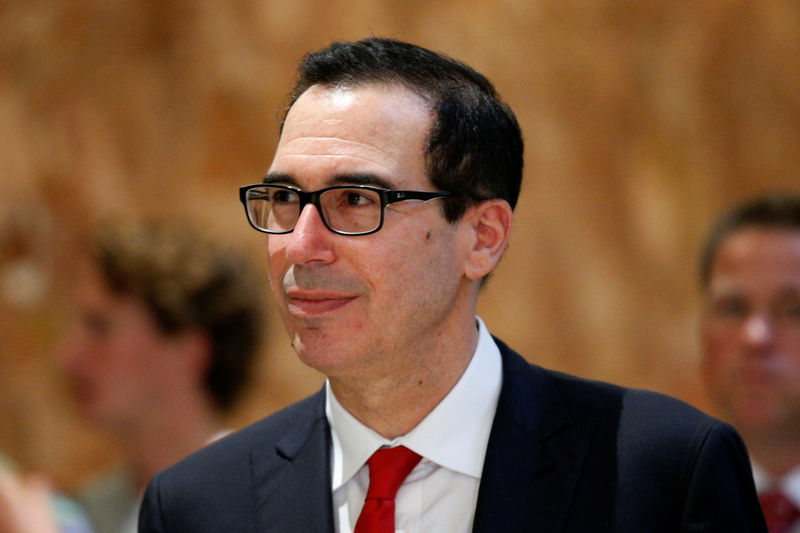WASHINGTON (Reuters) - U.S. Treasury Secretary Steven Mnuchin said on Thursday that Hurricane Harvey could bring forward the deadline by which the nation's debt ceiling needs to be raised and that he is open to the borrowing cap being dealt with as part of a wider bill.
"We obviously have now the hurricane spending, which is an issue. So that's going to have some impact on our September spending," Mnuchin said in a interview with broadcaster CNBC, adding that it could affect the debt ceiling deadline by a couple of days.
He also said projections may move around once the Treasury receives corporate tax receipts on Sept. 15.
The U.S. government has a statutory limit on how much money it can borrow to cover the budget deficit that results from Washington spending more than it collects in taxes. Only Congress can raise that limit.
Mnuchin told lawmakers in July they needed to raise the debt limit by Sept 29, otherwise the U.S. government might not have enough money to pay all its bills.
Yields on U.S. Treasury bills maturing in the first two weeks of October shot up by between 4 and 5 basis points each following Mnuchin’s comments. The moves reflect some concern in the short-term Treasury securities market that lawmakers might not raise the limit in time.
Mnuchin's comments came as financial firms fear that the U.S. Congress may fail to reach a deal to raise the country's debt limit.
The Treasury chief appeared open to the possibility of raising the debt ceiling as part of a larger bill in Congress.
Asked if he would support the debt ceiling being tied to a bill on Hurricane Harvey relief in Congress, he said while his preference was a 'clean' increase "at the end of the day, it's all about raising it. If they want to raise it and attach it to something, that's fine with me as well."
Mnuchin said he was having discussions on the debt cap with both Republican and Democrat leaders and he remained "very confident" the ceiling would be raised.
Separately, Mnuchin suggested the Trump administration's position on financial regulation reform was not overly distant from that of the nation's central bank.
Last week Federal Reserve chair Janet Yellen warned against rolling back reforms introduced following the 2007 to 2009 crisis, and said any changes should be modest.
"We are working on a lot of things together with the Fed and see many aspects of [regulation] the same way," Mnuchin said.
President Donald Trump has yet to decide whether to renominate Yellen when her term as chair ends in February. Gary Cohn, the former Goldman Sachs (NYSE:GS) president who is now Trump's chief economic advisor, is also seen as a strong contender.

Mnuchin, who is involved in the selection process, declined to comment on the possible frontrunners but said that he and Yellen, who meet on a weekly basis for breakfast, "have a very constructive dialog on a lot of issues, including regulation."